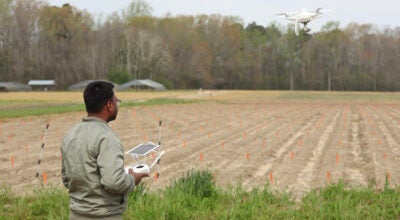Ebola training falls short
Published 9:56 pm Saturday, December 27, 2014
At the height of panic over the Ebola virus, a complaint filed in October with a state occupational health agency revealed that only a handful of firefighters and emergency medical technicians in Suffolk Department of Fire and Rescue had completed training on bloodborne pathogens within the previous year.
The complaint was filed Oct. 14, alleging that fire personnel and paramedics have not been provided annual bloodborne pathogen information and training and that the department’s bloodborne pathogen/exposure control plan is not reviewed and updated annually.
In a letter to Robin Pasko, regional health director for Virginia Occupational Safety and Health, Chief Cedric Scott wrote that bloodborne pathogen training is provided in January of each year and that each employee is required to take the online course.
“We are currently reviewing our process to ensure that everyone has completed this annual training,” Scott wrote. “It is our goal to make sure that all employees are in compliance with annual training requirements. If employees are found to have not completed the training, they will be required to do so immediately.”
A training schedule released in response to the FOIA request shows infection control training was offered in January 2014. Two classes are offered each month, covering topics as varied as the care of motorcycle crash victims, allergic reactions, traumatic chest injury, stroke awareness, fractures and more.
However, Scott told the News-Herald earlier this month that only 28 of the approximately 220 full-time and 30 part-time personnel required to complete the bloodborne pathogen training had actually done so within the year prior to the complaint.
Three days after the complaint was lodged, EMS Training Officer Ryan Praither wrote in an email to fire department personnel, “This is just a friendly reminder that everyone needs to log into EMSAT and complete the monthly training for January 2014 ‘Infection control update’ module. After completion everyone needs to send a copy of their Certificate of Completion to the Training Bureau.”
In the interview with the News-Herald, Scott said the department plans on better tracking measures to determine how many personnel are taking advantage of the training opportunities the department offers rather than getting their continuing education from conferences and classes outside the department.
“What we’ve done is put some processes in place so we can provide some kind of continuous look to see who has went through training and provide reminders,” Scott said.
Scott wrote in the same letter to Pasko that the bloodborne pathogen/exposure control plan was last reviewed and updated in 2011.
“We are reviewing our process and implementing appropriate measures to ensure our plan is reviewed and updated on an annual basis,” he wrote. “Suffolk Fire and Rescue has also been active in addressing current events such as the Ebola Virus Disease.”
In the interview with the News-Herald, Scott said that lapse “will not happen again.”
The document apparently had been left out of a rotation of documents that needed to be updated annually. Scott said it got lost in transition after former chief Mark Outlaw retired in April 2012, and Scott did not join the department until a year later.
“I can only say the document was not placed in an annual cycle of updates,” he said. “We’re going to certainly make sure these processes are in place and that in the coming years, these documents will be updated and we have systems in place to address it.”
In response to the Ebola virus, a refresher course in bloodborne pathogens was conducted at the Emergency Operations Center on Kings Fork Road in late October, and all shifts were scheduled to attend.
After receiving the response and accompanying documents, Pasko wrote that the information was “satisfactory to address the complaint items and so the complaint will be closed.”






